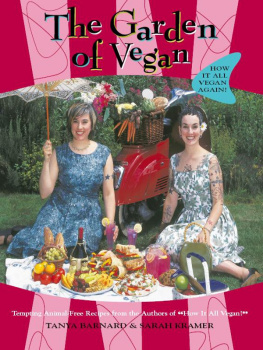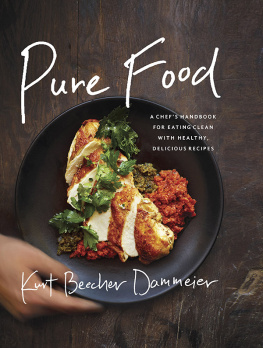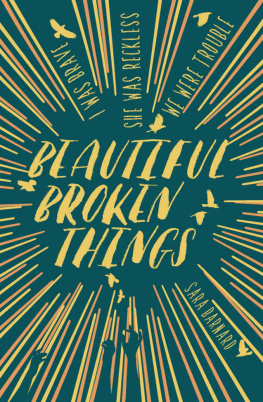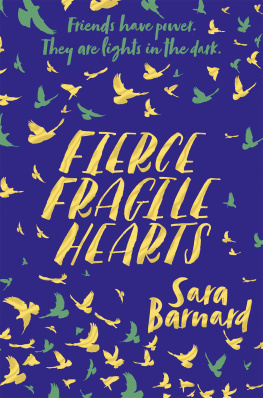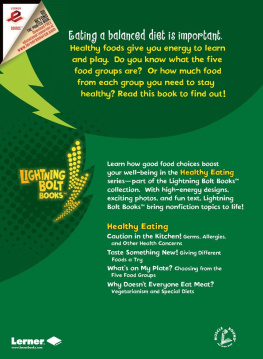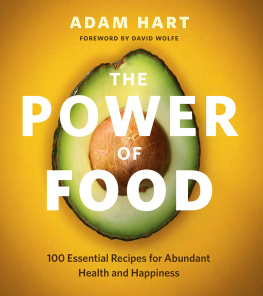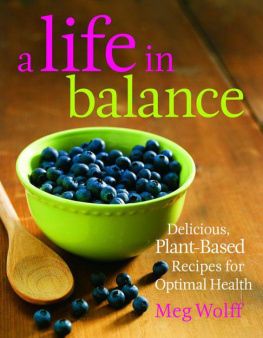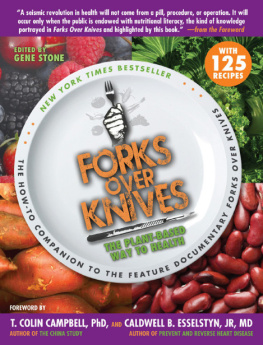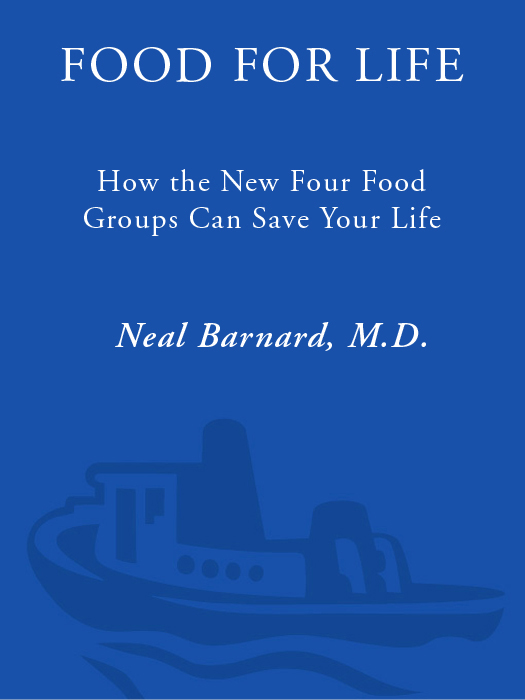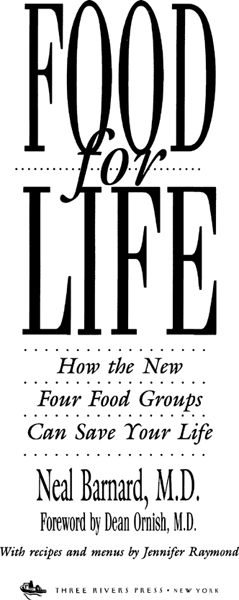Also by Dr. Barnard
The Power of Your Plate.
Summertown, Tenn: Book Publishing Company, 1990
A Physicians Slimming Guide.
Summertown, Tenn: Book Publishing Company, 1992
Live Longer, Live Better.
Cassette
Summertown, Tenn: Book Publishing Company, 1992
Contents

1.
2.
3.
4.
5.
6.
7.
8.
Acknowledgments

It has been a great pleasure to work with many people in the development of this book. My collaborator, Jennifer Raymond, used her finely tuned culinary skills to turn powerful nutritional guidelines into menus and recipes that are familiar, delicious, and easy to make. Each one is a gem.
Although innumerable physicians and other experts shared their wisdom as this book was being researched, particular thanks go to Dean Ornish, M.D., T. Colin Campbell, Ph.D., Randall Lauffer, Ph.D., Denham Harman, M.D., and Victoria Moran for sharing innumerable insights and for allowing themselves to be quoted herein.
I owe a continuing debt to Virginia Messina, M.P.H., R.D., and Mark Messina, Ph.D., for their ongoing assistance on a wide variety of nutrition issues. Heartfelt thanks also go to Denis Burkitt, M.D., Oliver Alabaster, M.D., and John McDougall, M.D., for their inspiration and encouragement, and for their pioneering work unraveling mysteries of nutrition in medicine.
Particular appreciation goes to Patti Breitman, an outstanding literary agent, whose wisdom and experience guided this project along. I also owe a great debt to Peter Guzzardi, whose skillful editing and support for all aspects of the publication of this book are deeply appreciated.
Thank you to the dedicated staff of the Physicians Committee for Responsible Medicine for their autonomous and creative work while I was ensconced at the medical library.
Finally, I would like to thank my parents, Donald and Margaret Barnard, who have not only tolerated with enviable equanimity a son whose medical career uses a fork instead of a scalpel, but who are also among my best research subjects.
Foreward

For the past seventeen years, in a series of clinical investigations, my colleagues and I at the Preventive Medicine Research Institute have been conducting research which demonstrates that even severe coronary heart disease often can begin to reverse, without cholesterol-lowering drugs or surgery. Within a few days to a few weeks, most of our study participants reported marked reductions in the frequency of chest pain (angina). Many became pain-free. Within one month, many participants showed an increased blood flow to the heart and an improved ability of the heart to pump blood. Within one year, even severe coronary artery blockages began to reverse in most of our study participants. In addition, most of them were able to reduce or even discontinue their cardiac medications, under their doctors supervision. The patients each lost an average of twenty-two pounds during the first year, even though they were eating a great quantity of food and they were eating more frequently. These improvements have given many people new hope and new choices.
The implications of our findings go beyond reversing heart disease. If heart disease can be reversed, then it may be prevented. Since more Americans die each year of heart and blood vessel diseases than all other causes combined, the potential savings in lives and economics may be enormous.
In Food for Life, Dr. Neal Barnard makes a powerful and persuasive case for why you may wish to change your diet. Changing your diet may decrease your risk not only of cardiovascular disease but also of breast cancer, colon cancer, prostate cancer, osteoporosis, diabetes, hypertension, and a variety of other chronic degenerative diseases that afflict our country. In this book, Dr. Barnard not only tells you why you may want to change your diet, he also shows you how. He offers detailed, practical guidance on state-of-the-art healthful eating, and a complete twenty-one-day program to help make the transition from old dietary habits to new and better ones. He will also help you start your own program of exercise and provides effective ways to manage stress.
One of the surprising findings in our study is that, for many people, it is easier to make big changes in diet and life-style than to make only moderate ones. Although this goes against conventional wisdom, we found it to be true. When people make only moderate changes in diet and life-style, they have the worst of both worlds. They have the sense of deprivation because theyre not able to eat and do everything that they want, but theyre not making changes big enough to make them feel much better or to have much effect on their weight, their cholesterol, or their health. On the other hand, when people make comprehensive changes in their diet and life-style, they begin to feel so much better so quickly that the choices become clear and, for many people, worth making.
Dr. Neal Barnard has been a leader in educating people about the health benefits of improving their diets. I recommend this book heartily.
Dean Ornish, M.D.
President and Director
Preventive Medicine Research Institute
University of California, San Francisco
Introduction

The New Scientific
Breakthroughs
In science, there are times when dramatic discoveries alter our most basic assumptions. People thought the earth was at the hub of the solar system until Copernicus found the sun at the center of our celestial ballet. Columbuss failure to fall off the earths edge forced the map into a globe. Newtonian principles relating mass, velocity, acceleration, and energy forged the structure of physics until Einsteins theory of relativity shook its very foundation. In each case, old ideas were relegated to the history shelves, and we took in hand the power of new knowledge.
Something similar has happened in the world of nutrition. For centuries we thought of food choices as a modest force in medicine. We were wrong. In nutrition, a dynamic, new, and optimistic world has replaced the flat vista of the past.
After decades of frustrating calorie-counting diets, new weight-loss discoveries allow most people to lose weight, keep it off permanently, and never count another calorie or mix another diet drink.
Heart disease can not only be prevented; with proper diet and life-style, it can be reversed. That was something most doctors never dreamed of a few years ago. New research has yielded a program that can begin the process of reversal for most heart patients within one year.


